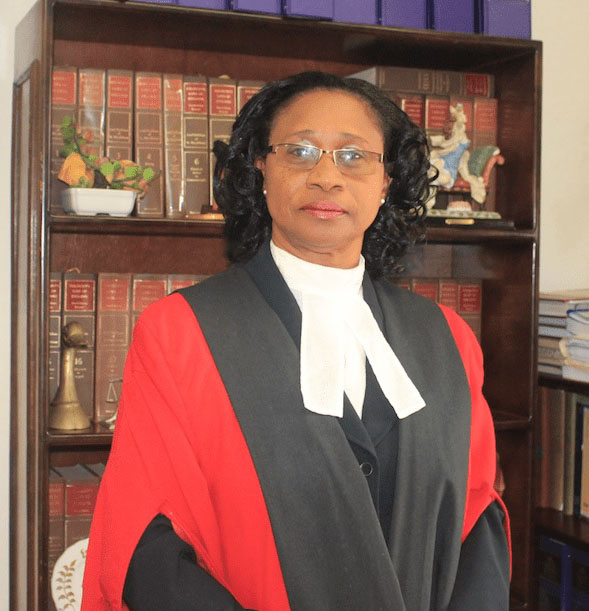Lamenting the condemnation of the judiciary by persons who “should know better,” acting Chancellor Yonette Cummings-Edwards yesterday said it is doing its best to deliver justice despite its limited human resources.
Addressing a hearing where one of the judges of the Full Bench of the Court of Appeal was seeking a recusal, Justice Cummings-Edwards observed that there are some 13 judges in the High Court to preside over thousands of cases “and we’ve not been complaining, we’ve been doing our work assiduously…”
She said with the limited number of judges, who must rotate presiding over matters in Demerara, Essequibo and Berbice districts, notwithstanding their overwhelming workload, it places a further strain on the appellate court if one of its only three judges has to excused, necessitating a judge to be brought in from the High Court.
The acting Chancellor appeared to be responding to comments recently made by Attorney General Anil Nandlall, who said that judges are not delivering timely written decisions, and Senior Counsel K. A. Juman-Yassin, who described most of them as being delinquent in this regard.
Noting the availability of a previous written ruling in the case which the court was hearing at the time, Chancellor Cummings-Edwards asserted, “we have been writing decisions.”
She shared that the particular judgment is recorded in one of the volumes of the West Indian Law Reports, which is published by Lexus Nexus out of London. She went on to note, “We do not have facilities for publication here and that is why we do not have a website yet with publications.”
The Chancellor said “we are in a sad state indeed, legally, given our numbers and [an] even more sad state given the fact that our judges are being pilloried… even when we’re doing our level best at ensuring justice, given our small numbers throughout the length and breadth of Guyana.”
She further lamented that such comments emanated from “persons who ought to know better… who sit in their ivory towers and make their statements on social media and otherwise. It’s a sad state of affairs in Guyana.”
She added, “…but work will… we have taken an oath of office and we are true to that oath… we will continue to work.”
Both President and Vice President of the Guyana Bar Association Pauline Chase and Robin Stoby SC, respectively, who were attorneys in the matter before the appellate court at the time, indicated that they had taken note of the issue.
For his part, Senior Counsel Stoby said that he was personally appalled at some of the comments on social media and wanted to register his disappointment.
He opined that the difficulty with which the judiciary is confronted stems from its “dignity” and “graciousness” which puts it in a position of not being inclined to respond.
Senior Counsel Edward Luckhoo, who is also an attorney in the matter, shared Stoby’s sentiments, stating that “the unenvious position the judiciary finds itself in is [that] when these allegations and assertions are made… they really are in a position where allegations are made and where they are precluded by their dignity from being able to respond…I think that is the problem.”
“Indeed it is,” Chancellor Cummings-Edwards added.
In his weekly Facebook programme, “Issues in the News,” aired on October 12, 2021, Nandlall called for compliance by judges with the law requiring them to render written judgments in the stipulated six-month timeframe, while stressing that compliance is expected.
Days following the live broadcast, Juman-Yassin weighed in on the issue, which he described as a “delinquency” among “most” judges and called on them to “put themselves in order.”
According to Nandlall, the judiciary has not been complying with the six-month deadline in which written decisions must be rendered.
Meanwhile, Juman-Yassin, in a letter to the editor of this newspaper, published on October 17, 2021, said that while a “few” judges adhere to the timeline, “I would say that from my practice and from what my other colleagues at the Bar tell me, that this delinquency is not in some judges but most judges.”
He said that it presents the justice system in an “opaque” manner and opined that the duty of ensuring compliance should rest squarely with the Chancellor.
The absence of a Judicial Service Commission, which has not been reconstituted since 2017, has prevented the appointments of new magistrates and judges.






